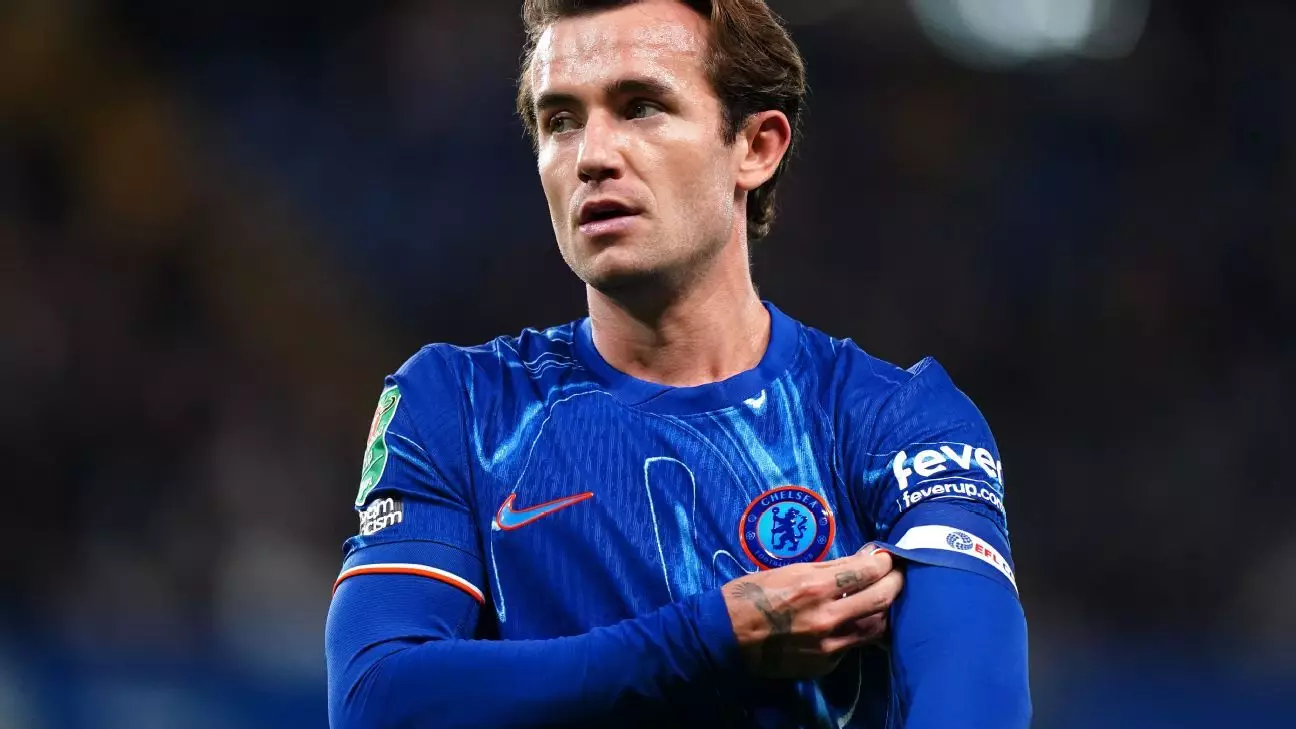The situation surrounding Ben Chilwell at Chelsea Football Club has ignited passionate discussions about player management, club strategy, and the emotional weight of professional sports. Despite Chilwell’s commendable track record with 70 Premier League appearances over four seasons, this year he has found himself sidelined, participating in only a single match— the Carabao Cup. The new manager, Enzo Maresca, has crafted a narrative that illuminates both the pragmatics of team selection and the human toll that these choices can exact on players.
Maresca’s recent declarations reveal a profound sense of regret intertwined with the practicalities of managing a professional squad. He openly expressed his shame regarding Chilwell’s treatment, acknowledging the natural desire of players to accrue game time and perhaps seek opportunities elsewhere. Despite his emotional response, Maresca firmly stated that he sees no suitable role for Chilwell within his tactical framework. This juxtaposition of feeling regret while simultaneously making unpopular decisions highlights the conflicts inherent in coaching—balancing team strategy with individual player welfare.
The coaching approach of Maresca emphasizes adaptability on the pitch. He mentioned other players such as Malo Gusto, Reece James, and Marc Cucurella, noting their distinct abilities to meet various tactical demands during matches. This admission reveals not only a preference for versatility in a high-stakes environment but also a necessity to innovate within the parameters of modern football. Unfortunately, this quest for tactical flexibility is at odds with Chilwell’s traditional strengths as a full-back. Maresca’s claim that he is “not a fan of full-backs going up and down” signifies his strategic vision diverges significantly from what Chilwell offers.
Chilwell’s situation doesn’t exist in a vacuum. The coaching staff’s decisions invariably affect other players, including the young defender Renato Veiga, who appears to be wrestling with a similar sense of frustration regarding positional clarity and playing time. Maresca’s comments on Veiga indicate that the club remains committed to nurturing talent—even when that talent does not conform perfectly to the existing tactical structure. This fosters an environment of cautious optimism, yet it also raises questions about the long-term ramifications for player morale and retention at Chelsea.
The current plight of Chelsea, having gone five matches without a win in the Premier League, serves as a critical backdrop to the discussion at hand. As the club prepares to host Bournemouth, the pressure intensifies. The need for tactical coherence, alongside respect for player contributions, will be paramount if Chelsea seeks to rejuvenate its competitive edge. As Maresca contemplates his roster and the intricate balance of strategy and empathy, the unfolding narrative surrounding Chilwell and other sidelined players underscores a broader examination of management philosophy in modern football.
While decisions made by coaches often stem from tactical necessities, they carry profound emotional weight. The complexity of navigating player relationships amid evolving strategies is a task that may well define the success or failure of a team’s culture and performance.


Leave a Reply